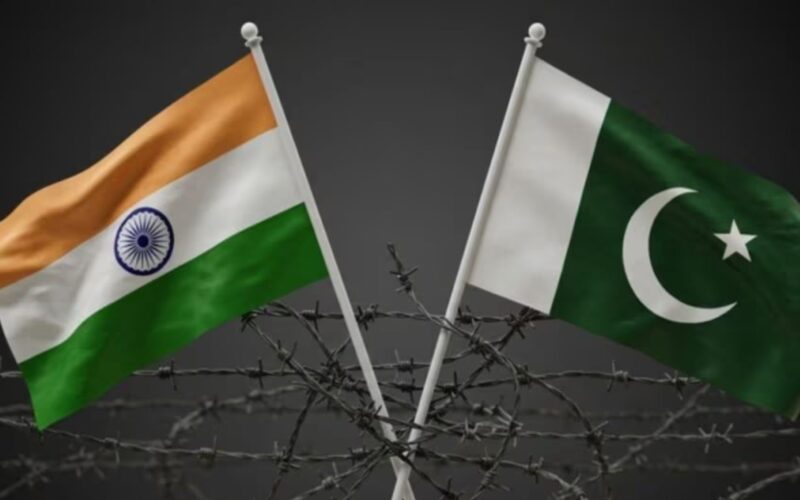Washington/Islamabad/New Delhi (National Times): In a significant breakthrough, U.S. President Donald Trump announced on Saturday that India and Pakistan have agreed to a “full and immediate ceasefire” following intense diplomatic talks mediated by the United States. The agreement marks a critical step toward de-escalating the recent surge in hostilities between the two nuclear-armed neighbors, which had raised global concerns over regional stability.
In a post on Truth Social, Trump stated, “After a long night of talks mediated by the United States, I am pleased to announce that India and Pakistan have agreed to a FULL AND IMMEDIATE CEASEFIRE. Congratulations to both Countries on using Common Sense and Great Intelligence. Thank you for your attention to this matter!”
Pakistan’s Deputy Prime Minister and Foreign Minister Ishaq Dar confirmed the development, posting on X, “Pakistan and India have agreed to a ceasefire with immediate effect. Pakistan has always strived for peace and security in the region, without compromising on its sovereignty and territorial integrity.”
U.S. Secretary of State Marco Rubio further elaborated, noting extensive diplomatic engagement over the past 48 hours. In a post on X, Rubio said, “Over the past 48 hours, VP Vance and I have engaged with senior Indian and Pakistani officials, including Prime Ministers Narendra Modi and Shehbaz Sharif, External Affairs Minister Subrahmanyam Jaishankar, Chief of Army Staff Asim Munir, and National Security Advisors Ajit Doval and Asim Malik. I am pleased to announce the Governments of India and Pakistan have agreed to an immediate ceasefire and to start talks on a broad set of issues at a neutral site. We commend Prime Ministers Modi and Sharif on their wisdom, prudence, and statesmanship in choosing the path of peace.”
The ceasefire comes amid heightened tensions sparked by a terrorist attack in Jammu and Kashmir’s Pahalgam on April 22, which killed 26 civilians, prompting India to launch ‘Operation Sindoor’ targeting terror camps in Pakistan and Pakistan-administered Kashmir. Pakistan retaliated with drone and missile strikes, leading to civilian casualties, including five deaths in Jammu and Kashmir and injuries in Punjab’s border districts. The violence had led to red alerts in Punjab’s Bathinda, Amritsar, and Jalandhar, with widespread disruption, including the suspension of the Indian Premier League (IPL).
While India’s Ministry of External Affairs (MEA) has not yet issued an official statement, a press briefing scheduled for 6 p.m. IST is expected to clarify New Delhi’s stance. The agreement has drawn cautious optimism, with Saudi Arabia also offering mediation support, highlighting the international community’s push for peace.
The ceasefire includes commitments to halt cross-border shelling, drone incursions, and missile strikes, with both nations agreeing to initiate dialogue on unresolved issues, including Kashmir, at a neutral venue. The U.S. mediation, backed by high-level engagements, underscores a rare diplomatic success in a region fraught with decades of conflict.
As residents in Punjab and Jammu and Kashmir await relief from days of blackouts, sirens, and evacuations, the ceasefire offers hope for stability. However, analysts caution that sustained dialogue will be crucial to address underlying tensions. For now, the global community, including the G7, has welcomed the development, urging both nations to build on this momentum for lasting peace.

